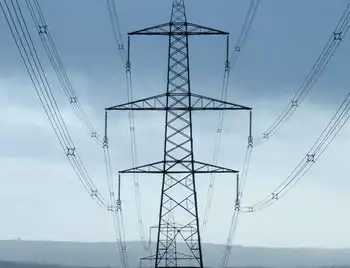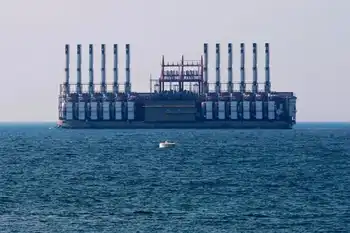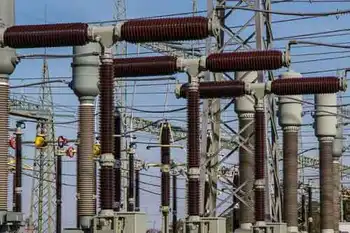Bredesen proposes Tennessee solar research center
By Associated Press
High Voltage Maintenance Training Online
Our customized live online or in‑person group training can be delivered to your staff at your location.

- Live Online
- 12 hours Instructor-led
- Group Training Available
The governor proposed in his State of the State address that Tennessee build on its fledgling biofuels initiative for turning switchgrass into non-food ethanol and create a solar power research center to spur green energy jobs.
"While no one knows exactly which specific (clean energy) technologies will prevail, it seems beyond dispute that green energy will be an area of vast importance and growth in the decades ahead," Bredesen told the Legislature.
Bredesen said in a teleconference that his solar plans are "a little more than an idea, but certainly not complete."
Still, officials at Oak Ridge National Laboratory and the University of Tennessee's main campus in Knoxville are excited. Bredesen would have them anchor the project, much as they have done with biofuels.
"In a sense what the governor did was throw out a challenge and said, 'Come up with a compelling story and we will have a receptive audience,'" ORNL Director Thom Mason said.
"We have been talking to the university and there are obviously some private sector partners that could be brought into this," Mason said. "Given the push that is going to come out of the new (Obama) administration (for renewable energy), this is very timely and we need to act pretty quickly."
David Millhorn, UT's excutive vice president, said the plan "would allow us to establish here in East Tennessee a concentration of scientists and world leadership technologies."
In the biofuels initiative, UT received $70 million from the state for development and support of a biofuels refinery built with private partner DuPont Co.
Meanwhile, the Oak Ridge National Laboratory used its ties to the project to win a $125 million designation by the Department of Energy as a national biofuels research center.
The Oak Ridge lab, with its supercomputing capability and ability to study new materials at the Spallation Neutron Source facility, will be key to the solar energy project.
Matt Kisber, state economic and community development commissioner, said his department has $15 million in unobligated funds for energy related projects that could be used to kickstart the project.
"This isn't about having the deployment of solar in Tennessee," Kisber said. "It is more about being the place where we innovate and manufacture for the rest of the country and the world."
Bredesen said money from the state wouldn't go very far, though. "Obviously, anything like this would depend on also, I would say, massive amounts of federal help," the governor said.
The project would aim to develop solar energy technologies that are substantially more efficient and less expensive than available today. As much as 10 times cheaper, Mason said.
The state will work to engage private partners as well.
Hemlock Semiconductor Corp., which will build a $1.2 billion plant in Clarksville to produce polysilicon, a raw material used to make solar cells and semiconductor devices, has already been approached.
"To get all the right parties together to put best minds together to help advance the technology for solar sounds like a very interesting idea," said Rick Doornbos, Hemlock's president and chief executive, who attended the speech.
"There is a role we can play in terms of how helping to find out how do you keep moving that technology forward, lower the cost and improve the efficiency," he said.
Kisber pointed to other possiblities, including Sharp Electronics Corp., which manufactures solar panels in Memphis, and AGC Flat Glass in Kingsport, which makes glass for solar panels.
The governor wants to make renewable energy his legacy to Tennessee, Kisber said.
"When we first got into this, the governor said to me, 'I would hope that 10 years from now that people will look back and say what we did for this sector is as meaningful as what Gov. (Lamar) Alexander did in bringing in the automotive industry to the state,'" Kisber said.
Asked if thinks it will happen, Kisber said, "I am a believer."











